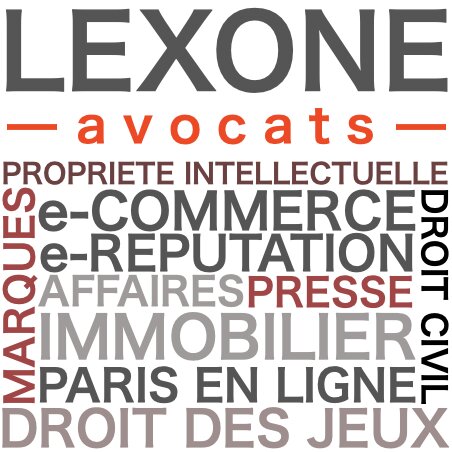Best Art & Cultural Property Law Lawyers in Paris
Share your needs with us, get contacted by law firms.
Free. Takes 2 min.
List of the best lawyers in Paris, France
About Art & Cultural Property Law in Paris, France
Art & Cultural Property Law in Paris, France is a specialized area of law that deals with the protection, transfer, and restitution of artworks and cultural heritage. Rooted in a deep respect for France's rich history and cultural significance, this field of law ensures that artwork and artifacts are preserved and protected under legal frameworks. In Paris, a city renowned for its contribution to art and culture throughout history, legal practitioners in this field work to safeguard cultural property while addressing legal issues related to ownership, authenticity, and provenance.
Why You May Need a Lawyer
Individuals or organizations in the art and cultural sectors may require legal assistance for several reasons. Common situations where a lawyer can be invaluable include:
- Disputes over artwork ownership or provenance.
- Legalities involved in the sale or purchase of art pieces.
- Restitution claims involving artifacts or art removed during historical periods such as wartime.
- Negotiating and drafting contracts for artists, galleries, and museums.
- Cases involving art theft or illegal trade of cultural property.
- Advising on compliance with international conventions affecting cultural property.
- Legal issues arising from art loans or exhibitions.
Local Laws Overview
Paris, and France as a whole, has robust legal frameworks governing art and cultural property. Key aspects include:
- Cultural Heritage Code: Governs the protection and preservation of French cultural heritage, including historical monuments and archaeological heritage.
- Intellectual Property Code: Addresses issues such as artists' rights, reproduction, and distribution of artworks.
- International Conventions: France is a signatory to several international agreements like the UNESCO Convention on Cultural Property, which influences national policies.
- Customs Code: Regulates the export and import of cultural goods, aiming to control and prevent illegal trafficking.
Frequently Asked Questions
What is considered cultural property under French law?
Cultural property is defined broadly and can include artworks, antiques, artifacts, and any objects having historical, artistic, or archaeological significance.
What should I do if I suspect an artwork is a forgery?
Consult a lawyer promptly. They can guide you through acquiring expert evaluations and processes to legally assert and protect your rights.
How are disputes over art provenance resolved?
Resolving disputes often involves providing documentation, such as legal provenance records, and can sometimes require mediation or court proceedings.
Are there restrictions on exporting art from France?
Yes, exports of cultural property are controlled. Items of significant cultural heritage require a certificate from the Ministry of Culture before they can be taken out of the country.
What legal actions can I take if a cultural artifact is stolen?
Report the theft to authorities immediately. Legal procedures can involve reclaiming property through judicial avenues or negotiating returns with current holders.
How can I verify the authenticity of a piece of art?
Authenticity can be determined by consulting art experts, appraisers, and maintaining documentation such as a certificate of authenticity or previous ownership records.
What legal rights do artists have over their work in France?
Artists have moral and economic rights under French law, allowing them to retain control over how their works are used and distributed.
Can museums or galleries be held liable for displaying stolen art?
Yes, they have a duty to ensure due diligence in verifying the provenance of artworks and can face legal action if found negligent.
Who oversees the enforcement of cultural property laws in France?
The Ministry of Culture, in conjunction with customs authorities and the police, enforce cultural property laws.
How do international laws affect art transactions in France?
Transactions are subject to international conventions and treaties, which can affect cross-border sales, acquisitions, and repatriations of cultural property.
Additional Resources
For more information or assistance, consider contacting:
- The French Ministry of Culture: Provides guidelines and regulations related to cultural property.
- UNESCO’s Paris Office: Offers insights into international cultural property protection efforts.
- ICOM (International Council of Museums): Offers professional standards and support for museum-related legal matters.
- Local Bar Associations: Can help connect you with specialized lawyers in art and cultural property law.
Next Steps
If you require legal assistance in Art & Cultural Property Law:
- Start by documenting all relevant information and gathering any pertinent documents.
- Consult with a lawyer specializing in Art & Cultural Property Law who is familiar with both local and international legal landscapes.
- Consider mediation or alternative dispute resolution if direct negotiation seems possible and suitable for the situation.
- Stay informed about your rights and obligations under French law to better navigate legal proceedings.
Lawzana helps you find the best lawyers and law firms in Paris through a curated and pre-screened list of qualified legal professionals. Our platform offers rankings and detailed profiles of attorneys and law firms, allowing you to compare based on practice areas, including Art & Cultural Property Law, experience, and client feedback.
Each profile includes a description of the firm's areas of practice, client reviews, team members and partners, year of establishment, spoken languages, office locations, contact information, social media presence, and any published articles or resources. Most firms on our platform speak English and are experienced in both local and international legal matters.
Get a quote from top-rated law firms in Paris, France — quickly, securely, and without unnecessary hassle.
Disclaimer:
The information provided on this page is for general informational purposes only and does not constitute legal advice. While we strive to ensure the accuracy and relevance of the content, legal information may change over time, and interpretations of the law can vary. You should always consult with a qualified legal professional for advice specific to your situation.
We disclaim all liability for actions taken or not taken based on the content of this page. If you believe any information is incorrect or outdated, please contact us, and we will review and update it where appropriate.

















